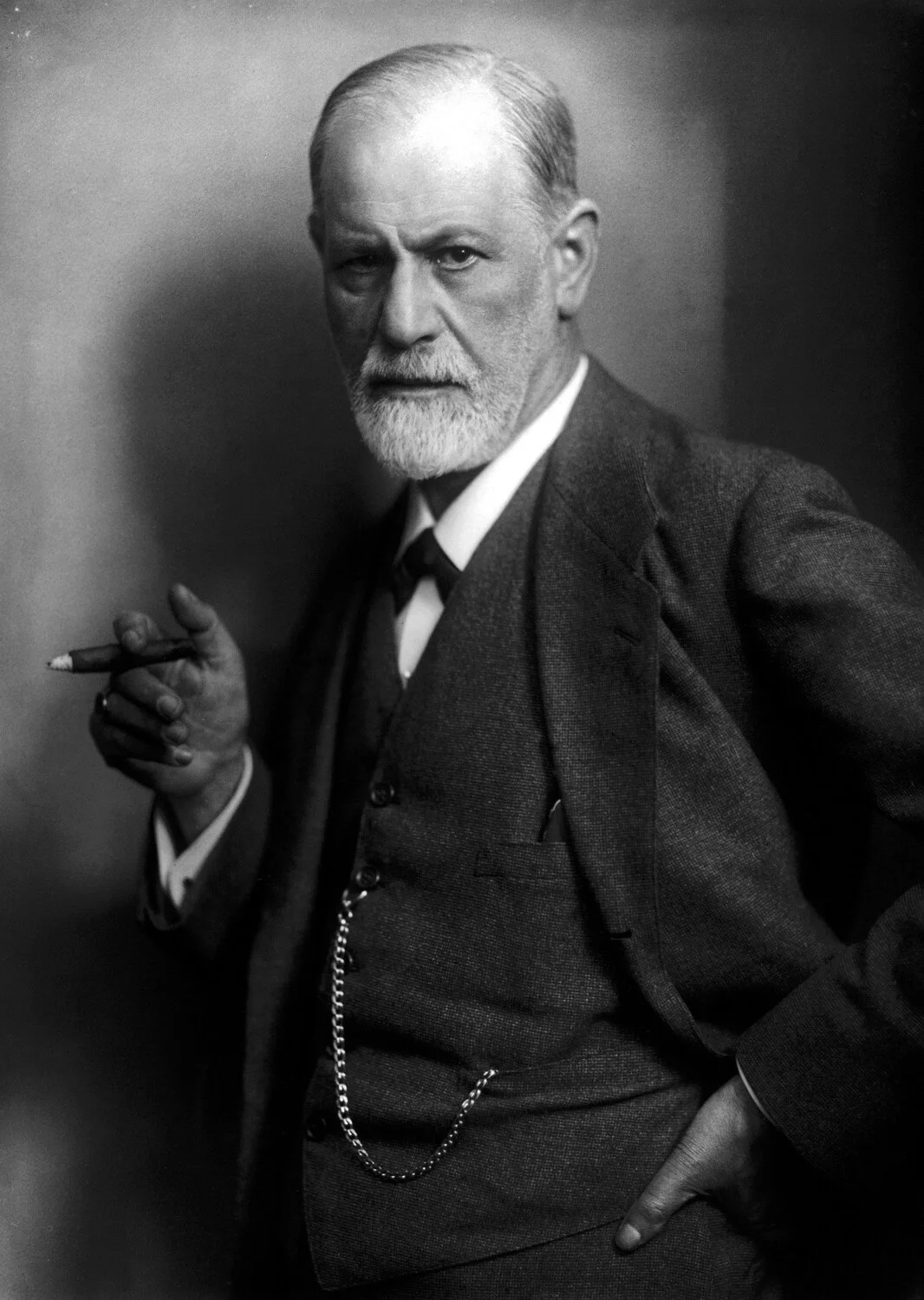Where it started.
Sigmund Freud.
The founder of psychoanalysis; he was beloved by followers, and hated by critics. The split reputation of Freud persists to this day, yet his influence on psychology and the world at large cannot be denied. Freud’s writings on psychoanalysis form the backbone for what psychoanalytic treatment is all about.
Where he started.
With a long line of philosophers in front him.

Democritus laughing and Heraclitus weeping, with a globe between them. Etching by R. Gaywood after J. van Vliet after Rembrandt van Rijn.

Parmenides sculpture by unknown artist, CC BY-SA 3.0

Diogenes (the cynic) painting by Jean-Léon Gérôme

Socrates sculpture at Louvre Museum, CC BY 2.0

Plato sculpture photo by Marie-Lan Nguyen, CC-BY 2.5

Aristotle bust. Marble, Roman copy after a Greek bronze original by Lysippos

Portrait of René Descartes by Frans Hals

Portrait of Benedictus de Spinoza by unknown artist

Portrait of Immanuel Kant by unknown artist

Portrait of Georg Friedrich Wilhelm Hegel by Jakob Schlesinger

Karl Marx portrait photograph by unknown artist

Friedrich Nietzsche portrait photograph by unknown artist
Philosophy isn’t called the mother of all knowledge for nothing. Psychoanalysis is built upon the foundation of Western philosophy and the great minds that came before Freud. Psychoanalysis is as much about philosophy as it is psychology. The two disciplines are intertwined and inseparable within a psychoanalytic milieu. What Freud created was a philosophy of mind that places him comfortably amongst the grand pantheon of philosophical thinkers.
And Freud left a long line of philosophers and psychoanalysts behind him.
We’re all standing on the shoulders of giants to paraphrase Isaac Newton. This is true inasmuch as psychoanalysts in practice today benefit from all the collected wisdom and knowledge of those men and women who have come before them. Freud inspired change with his writings and theories, creating conditions for advancements and critiques by others within philosophy, psychoanalysis, and many other fields, just as those before Freud did the same for him.
Contemporary psychoanalysts benefit from these critiques and advancements of Freud to help them in their approach to psychoanalytic treatment. Furthermore, contemporary psychoanalysts aren’t bound by the rules and practices of the early days of psychoanalysis, so alternative approaches and interventions developed since then can serve to inform the most up to date treatment methods within psychoanalysis.
